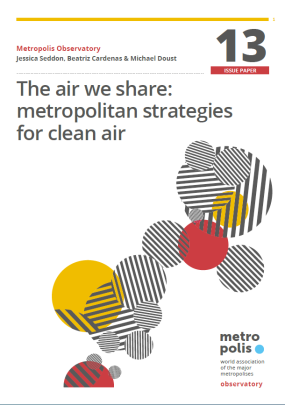The air we share: metropolitan strategies for clean air · Issue Paper #13 · Metropolis Observatory
Date of publication
Topic
Sustainability
Type of resources
Issue Papers

EN1.79 MB

